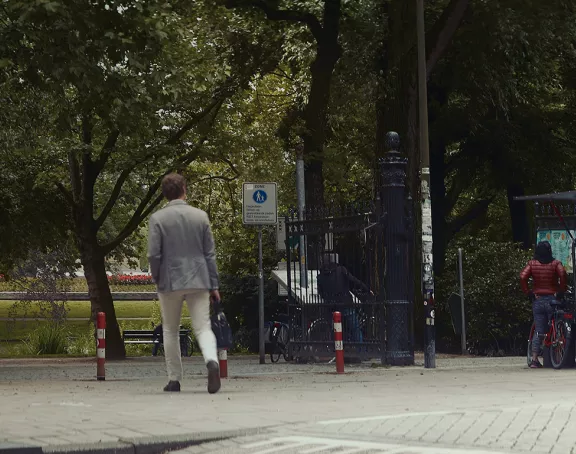Construction sector and corona: on the brakes unnecessarily?
Permits
The measures taken as a result of the corona crisis have also had an impact on the practice of granting permits. What happens if construction sites come to a standstill, or if an environmental permit which has been issued cannot be implemented due to corona measures? In any case, we see no reason for environmental permits for construction to be refused (Article 2.1, opening words and paragraph 1(a) of the Environmental Law (General Provisions) Act) in advance on the basis of concerns about the implementation of the corona measures. The grounds for refusal of a single permit for construction are exhaustive (Article 2.10 of the Wabo), such as conflict with the zoning plan or the Building Decree 2012.
Please note that this only concerns the assessment framework for the environmental permit for construction. When other (environmental) permits for a project are also required, broader assessment frameworks, in which there are no exhaustive grounds for refusal, play a role. In that case, there may be more scope to include the impact of the corona measures when balancing the interests for the granting of permits. This would be the case, for example, for an environmental permit for deviation from the zoning plan, or a permit or exemption under the Nature Conservation Act. In this case, too, however, a competent authority will have to be able to substantiate exactly how the corona measures affect the interests that must be protected in the context of the granting of a permit. This will often not be possible.
Although refusal of a permit on account of the corona measures does not seem immediately likely, the competent authority may make more use of the possibilities to extend or suspend the decision period, to allow itself more time to decide before a permit is granted. In short, the decision period for an environmental permit can be extended once by six weeks (Articles 3.9(2) and 3.12(8) of the Wabo, respectively). In principle, the decision period can only be suspended if the application is incomplete, if the applicant has given his consent or if there is a case of force majeure (Article 4:15 of the General Administrative Law Act). As a guideline for a case of force majeure, we note that the VNG (Vereniging van Nederlandse Gemeenten) mentions an extreme example in which 40% of a municipality is ill at home because of the corona outbreak. This situation is all but certain not to occur, or only in very exceptional cases.
Discontinuation of construction projects by clients
Our previous report explained that in the event of force majeure, certain powers are vested in both clients and contractors. However, as long as the execution of construction work by the government is not (lawfully) prohibited, force majeure does not generally apply on the part of the client. Clients therefore cannot invoke force majeure when work is halted.
Clients may, however, (temporarily) suspend the work (Section 14 paragraph 1 UAV 2012; Section 16 paragraph 1 UAV-GC 2005). As a consequence, the client must compensate any measures taken by the contractor as a result of the suspension, as well as the damage the contractor suffers as a result of the suspension. If the suspension lasts longer than 1 month, the contractor is also entitled to proportional payment for the part of the work carried out, in so far as this has not already taken place (14 paragraph 5 UAV 2012; § 16 paragraph 4 UAV-GC 2005).
Suspension of tenders
It is noticeable that clients are postponing tenders in the construction industry. This is often based on the reasoning that clients and bidders cannot foresee the consequences of the corona crisis; even the duration is currently uncertain. It would be pointless to put new contracts out to tender in the current environment.
First of all, tenders are to a large extent a "digital exercise" these days, and can therefore be perfectly well carried out electronically. Consultations, presentations, etc. can take place via Skype for Business, Microsoft Teams or other digital meeting platforms.
However, at the time of the award of the contract (or in any case before commencement of the work) the impact of the corona crisis on the work in question should be as clear as possible. To this end, clients may make reservations in their tender documents, for example with the following clause:
"It must be assumed in the tender that, at the time the Work commences, there will no longer be any measures in place to limit the spread of the corona virus.
The following clause will be included in the contract to be awarded:
- If @ weeks prior to the commencement of the Work measures to limit the spread of the corona virus are still in force, the Client will invite the Contractor to submit a price offer as referred to in par 45-2 UAV-GC in which the consequences of the measures in force are described by the Contractor and the consequences for the planning. The Client shall indicate the period during which it must be assumed that the measures will remain in force.
- Contractor will make this price offer within @ days of the Client's written request to do so.
- The Client will inform Contractor within @ days of receipt whether he accepts the price offer.
- If the Client accepts the price offer, he will order an Change in accordance with that price offer.
- If the Client does not accept the price offer, the Agreement will be deemed to have been terminated. As a result of that termination, the parties will no longer have any obligations in respect of each other, except that the Client will pay the Contractor a fixed fee for bid costs of EUR @, within 30 days after termination."
This provision is based on the UAC-GC but can easily be converted into UAV agreements or other construction contracts. In view of the time involved in a tender, it may well be that after a tender has been awarded, no change relating to the corona virus is required, or if so, it may be only for a limited time.
More about the coronavirus
You can read more publications on the impact of the coronavirus on our website. Here you will also find a list of contacts within our organisation who can advise you with questions about the implications of the coronavirus for your company.



